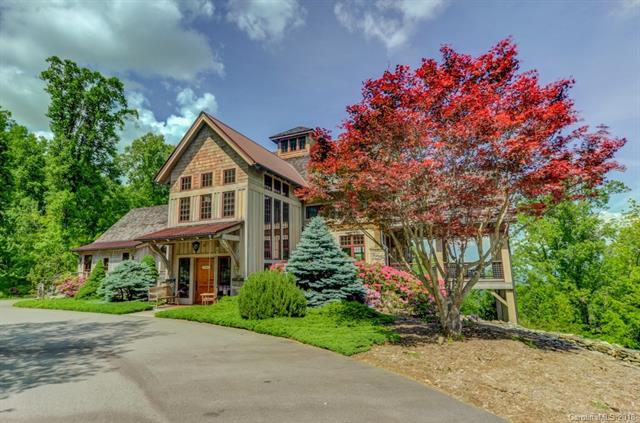4 Ways COVID-19 is Affecting the Housing Market
As the COVID-19 pandemic threatens financial markets and sends the U.S. economy into a recession, we must also take a look at what is happening in our local real estate market. The last time the financial markets suffered such a drop was during the 2008 Great Financial Crisis.
Here are 4 ways we believe, in our professional opinion, COVID-19 is affecting the housing market, for anyone curious:
It has not been easy to be a home buyer these days. With home prices rising around 10% annually, owning a home has become less affordable. Several large financial institutions are projecting that the economy will fall into recession. Let’s explore this in more detail.
1: Vacation Homes
Without a doubt, standing at the epicenter of the COVID-19 virus is the travel industry. Airlines, hotels, and a fleet of offshoot industries are now coping with the virus’s severe downstream effects.
Asheville, as we know, is a destination market. Many investors and residents generate passive income from short term rental activity. The impact of COVID-19 on global short-term rental markets is becoming more complex with a good deal of nuances.
We’ve been speaking with many vacation rental owners here locally to study the impact they are experiencing. They are seeing cancellations and drop-offs. Demand for vacation rentals has suffered some significant setbacks, but the supply trend doesn’t seem to match the noise in the wider travel industry. Expectations may be low, but vacation rental hosts are open for business. There most likely will be a temporary halt with government regulations to keep us safe and slow down the spread, but we believe demand will return.
2: Homelessness
Emergency housing units, money, and supplies will be needed for our homeless population. Local governments are releasing funding for emergency shelter housing, with more likely on the way. Asheville alone has a high number of homeless residents and most living outdoors. Many of those homeless are seniors who have chronic health conditions and are particularly susceptible to COVID-19.
Recreation centers and vacant hotels may need to be converted to emergency shelters to create new beds for the homeless. The task ahead raises tough questions for public health experts and providers of services for the homeless.
Homelessness raises other concerns: How to discharge someone from a hospital if they don’t have a home in which to self-isolate? How to immediately house people with substance-abuse disorders without risking their health? What to do with a shelter if someone starts coughing and running a fever?
3: Tenants/Renters
The proposed stimulus check that some federal lawmakers are pushing for all Americans could pretty much cover your rent for the average apartment in some North Carolina cities. It, most likely, would not cover rent in Asheville. Asheville has the highest rental rates in the state of North Carolina.
Think of all the people whose incomes have just gone to zero. COVID-19 -related layoffs have already hit ports and travel agencies, and more industries are likely to follow. When someone gets laid off, they lose their principal way of paying their mortgage and can easily start to miss payments.
The Trump administration announced a moratorium on foreclosures and evictions for federally backed mortgages on single-family homes. That would not apply to the vast majority of renters. It’s a domino effect. Renters don’t pay their rent, then landlords don’t receive their payment and could fall behind on their mortgage payments for their second, third, and so on investment properties.
4: Rents and Home Prices May Dip
Economists are saying the country is likely already in recession, and the downturn is uncertain at this point.
In most recessions, home prices and rents decline alongside falling incomes and wages. If a COVID-19-induced downturn is brief and the economy rebounds as President Trump has predicted, rents and home prices might only dip temporarily.
Wasn’t the root of the “housing crisis†the fact that rents were too high? If housing prices drop, won’t more people be able to buy a house? That is a complex question with a complex answer. Many who are now jobless will not be able to or in a position to purchase a home or have any savings for their downpayment or moving expenses. Many folks with second homes here, lost significant amounts of money in the decline of the stock market. They may also need to sell their second homes. As inventory increases and demand decreases, we will start to move to a more balanced market. For those who still have their jobs and have been considering and saving for a real estate purchase, now could be an opportunity to buy a home for a discounted price.
While we can’t control market events, we can take swift and immediate actions now to keep homeowners in their homes. If you need help, give us a call. We are your local experts. We are connected on a daily basis, with various lenders, vendors, investors, property managers, attorneys, builders, and much more. We can help direct and connect you with the right people, whether you need to refinance your home to save it during these tough times, sell, find a new tenant for your rental home, find temporary housing for your family, find mental health support, help to find a new job, find a home to rent, buy, or sell. If we don’t have the expertise in what you need, we can listen to you and help point you in the right direction. Right now we need to do what we can to stay home and help decrease the spread of the virus.

